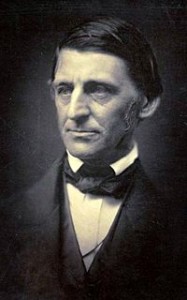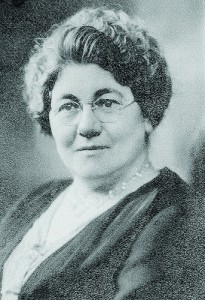
In a recent post for our BJ Seminars International blog, The Sky is Falling, I finished with a quote by Ralph Waldo Emerson.
This reminded me of another piece, attributed to Emerson, entitled “Success”. I remember being inspired by it many years ago, so searched for it again. You may also have come across it in your travels:
To laugh often and much;
To win the respect of intelligent people and the affection of children;
To earn the appreciation of honest critics and endure the betrayal of false friends;
To appreciate beauty,
To find the best in others,
To leave the world a bit better, whether by a healthy child,
A garden patch or a redeemed social condition;
To know even one life has breathed easier because you have lived.
This is to have succeeded.
But you may imagine my surprise, when searching on the web for these words, to learn that Emerson is not in fact the author!
I found many references to this particular controversy. Perhaps the most comprehensively researched is In Search of Success by Dirk H. Kelder.

Emerson lived from 1803 – 1882, but the original poem was almost certainly written by a woman called Bessie Stanley in 1905. Here it is:
He has achieved success who has lived well, laughed often, and loved much;
Who has enjoyed the trust of pure women, the respect of intelligent men and the love of little children;
Who has filled his niche and accomplished his task;
Who has never lacked appreciation of Earth’s beauty or failed to express it;
Who has left the world better than he found it,
Whether an improved poppy, a perfect poem, or a rescued soul;
Who has always looked for the best in others and given them the best he had;
Whose life was an inspiration;
Whose memory a benediction
Dirk Kelder’s site is well worth visiting to follow the whole controversy around this poem! Several different versions have emerged over time, attributed to different people, including Robert Louis Stevenson.
As Kelder says, perhaps this phenomenon has its roots in the fact that the whole idea of success fascinates folk and draws them to it. But, at the same time, individuals have their own ‘take’ on the idea so modify what is said about it.
Also, he suggests, sometimes a quotation that has actually been written by someone far less well known can be attributed to someone famous in the hope it might be accepted more readily as wisdom.
Kelder finishes by quoting yet another piece on success by an unknown author, which I’d seen before as it has done the rounds of the internet for some time.
It’s rather fun, so I’ll include it here as well. :)
At age 4, success is…not peeing in your pants.
At age 12, success is…having friends.
At age 16, success is…having a driver’s license.
At age 20, success is…having sex.
At age 35, success is…having money.
At age 40, success is…finding meaning & purpose to life.
At age 45, success is…finding meaning & purpose to life.
At age 50, success is…having money.
At age 60, success is…having sex.
At age 70, success is…having a driver’s license.
At age 75, success is…having friends.
At age 80, success is…not peeing in your pants.
Leave a Reply